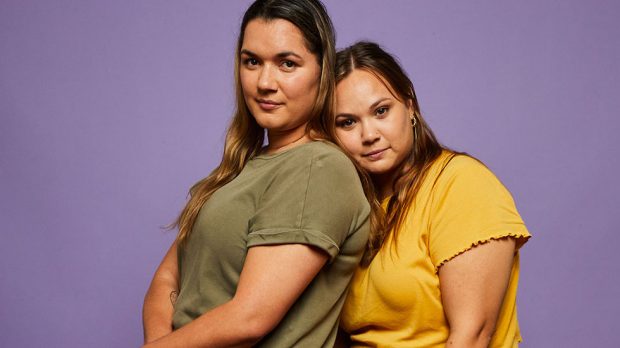
Kalyakoorl Collective will premiere their powerful new First Nations work FIRE with a full-length Blue Room Theatre season from Tuesday, June 22 to Saturday, July 10. The production is a new female-led work that combines dance, poetry and song to tell a story about love, loss, grief and sisterhood, following the journey of two sisters as they learn to rebuild their fractured relationship after becoming estranged during their childhood. BRAYDEN EDWARDS caught up with co-writer Ebony McGuire, who shared how the show was born out of a desire to recognise and celebrate the universal power of storytelling and its place in Indigenous Australian culture.
Congrats on FIRE hitting the Blue Room for this season. How long has this show been in the works for?
The poem that features in FIRE was written around the end of 2019, funnily enough whilst on the other side of the country. And the script somewhat originated from a short film script that I had been working on, which was also about two sisters. A lot of changes were made throughout the process of developing FIRE and it is very much its own story now.
It wasn’t until after lockdown last year, which was spent in QLD with most of my siblings, and after working with my two co-founders of Kalyakoorl Colletive, Nadia and Maddie, that I starting actually writing a script. We had a short season with Fringe World then had the opportunity to have a two-week development – which meant that we could double the length of the play, add a new but also not new character, and delve more into the relationships between Holly, Lyss and the presence of Nan.
And looking back further, who were the storytellers in your life that gave you the idea of becoming one yourself?
I am lucky enough to have many storytellers in my family. I was first introduced to the performing arts world when I was eight. My Nana and Aunty worked at Yirra Yaakin Theatre Company at the time and my sister and I used to go into work with the both of them whilst our mum was at uni. I discovered a few months ago that one of the first shows I ever saw, which was a kids show by Yirra Yaakin, featured three people in it that I work quite closely with now.
And what do you find to be most rewarding thing about sharing stories? Seeing your ideas come to life must be special, especially when you see how people connect with them?
For me, the most rewarding part of FIRE is the connections that are made between the characters and the audience members. Simply because Lyss, Holly and Josh, the characters of FIRE, are all inspired by people that I know and love. And when the audience see themselves in each character, it means that life’s problems, which we often don’t share, are quite universal and felt amongst most of us. It’s these things that remind us of what it means to be human and how important the people in our lives really are.
As someone who has worked in different forms of theatre, what do you think is the most defining feature of indigenous performance?
Whilst we strive to tell stories for our community and by our community, often these stories are not just our own. They are relevant and relatable to diverse audiences and important for others to understand. Indigenous theatre is about truth telling and bridging a gap that is sometimes felt throughout the country. It’s a way of bringing communities together.
And particularly with this story, do you remember first thinking of the idea? And how has the concept changed since then?
The idea for FIRE came about simply because my friends and I wanted to make some theatre together, which then meant that a story had to be written. Fortunately I have many sisters in my life who I was inspired by to write this story. As mentioned earlier I already had a bit of a story forming, and some Noongar poetry that I thought could potentially work together.
What message would you like people to take out of this show?
I’d love people to take away the message that our experiences and emotions are so universal, while also being so vastly different. No two relationships look the same, especially when it comes to family. But grief, love and sisterhood are something we all feel at different moments of our lives. I also want people to recognise that Indigenous theatre takes many forms, whilst the heart of every one of our stories remains relevant and heartfelt.
Tell us about Kalyakoorl Collective, the team behind this show. What makes it a unique organisation and what can we look forward to from the group in the future?
Kalyakoorl Collective is unique and fantastic because everyone’s voices are heard in the creation of all our stories. Maddie, Nadia and I created Kalyakoorl because we wanted a place where we could explore and expand our artistic abilities. We also wanted to create opportunities for Indigenous multidisciplinary artists in a local industry. Our passion is creating and sharing stories that matter to us, as young, female, cross-cultural artists. Keep an eye-out for our future works, as we have plenty of stories to tell.